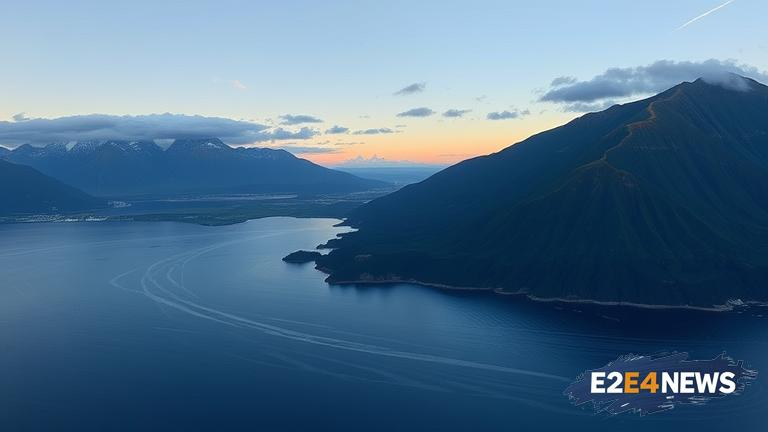The Marinus Link project, a proposed underwater electricity cable connecting Tasmania to the Australian mainland, has reached a critical juncture as the deadline for the project’s completion has passed. The Labor party, which has been under pressure to make a decision on the project, has chosen to avoid an ultimatum, instead opting for a more cautious approach. The project, which has been touted as a key component of Australia’s energy future, has been met with significant opposition from environmental groups and local communities. Despite this, the project’s proponents argue that it is essential for securing Tasmania’s energy supply and reducing the state’s reliance on fossil fuels. The Marinus Link project has been in development for several years, with the initial proposal submitted in 2019. Since then, the project has undergone significant changes, including a revised route and updated environmental impact assessments. However, despite these changes, the project remains a contentious issue, with many arguing that it will have devastating impacts on the environment and local ecosystems. The Labor party’s decision to avoid an ultimatum on the project has been seen as a strategic move, allowing the party to maintain a level of flexibility and avoid alienating key stakeholders. The party has stated that it will continue to assess the project’s viability and consider the concerns of local communities and environmental groups. The Marinus Link project is not the only energy project currently underway in Tasmania, with several other initiatives aimed at reducing the state’s carbon footprint and increasing its use of renewable energy. These projects include the development of new wind farms and the expansion of existing hydroelectric facilities. Tasmania has long been a leader in renewable energy, with the state generating over 90% of its electricity from hydroelectric power. However, the state’s energy supply is not without its challenges, with Tasmania experiencing periods of high demand and limited capacity during peak summer months. The Marinus Link project has been proposed as a solution to these challenges, providing a secure and reliable source of energy for the state. However, the project’s opponents argue that it is not the only solution, and that alternative options, such as increased energy efficiency and the development of new renewable energy sources, should be explored. The Australian government has pledged its support for the Marinus Link project, with the federal energy minister stating that the project is essential for securing Australia’s energy future. However, the project’s fate remains uncertain, with the Labor party’s decision to avoid an ultimatum leaving the project’s future hanging in the balance. As the debate over the Marinus Link project continues, it is clear that the project’s outcome will have significant implications for Tasmania’s energy supply and the state’s environment. The project’s proponents argue that it will provide a secure and reliable source of energy, while its opponents argue that it will have devastating impacts on the environment and local ecosystems. Ultimately, the decision on the Marinus Link project will depend on a careful consideration of the project’s potential benefits and drawbacks, as well as the concerns of local communities and environmental groups. The Labor party’s cautious approach to the project is a reflection of the complex and contentious nature of the issue, and the need for a thorough and considered assessment of the project’s viability. As the project’s future remains uncertain, one thing is clear: the outcome of the Marinus Link project will have significant implications for Tasmania’s energy supply and the state’s environment, and will be closely watched by stakeholders and observers alike. The project’s impact on the environment and local ecosystems will be a key consideration in the decision-making process, with environmental groups and local communities arguing that the project will have devastating consequences. The project’s proponents, on the other hand, argue that the project is essential for securing Tasmania’s energy supply and reducing the state’s reliance on fossil fuels. The debate over the Marinus Link project is a reflection of the broader challenges facing Australia’s energy sector, including the need to balance energy security with environmental sustainability. As the country transitions to a low-carbon economy, projects like the Marinus Link will play a critical role in shaping Australia’s energy future. The Marinus Link project is a complex and contentious issue, with significant implications for Tasmania’s energy supply and the state’s environment. The project’s outcome will depend on a careful consideration of the project’s potential benefits and drawbacks, as well as the concerns of local communities and environmental groups. The Labor party’s decision to avoid an ultimatum on the project is a reflection of the complex and contentious nature of the issue, and the need for a thorough and considered assessment of the project’s viability.
